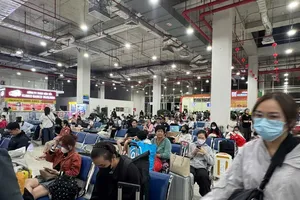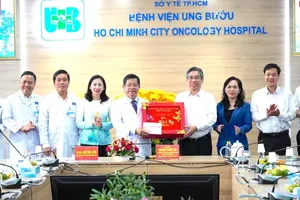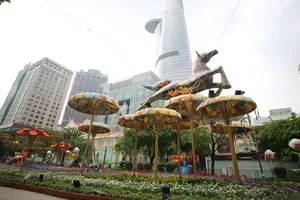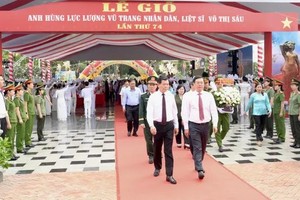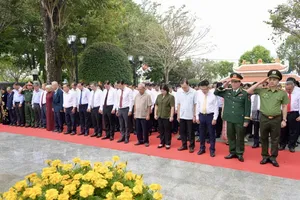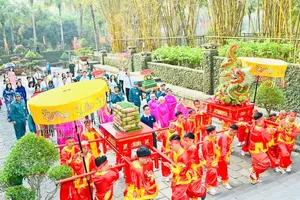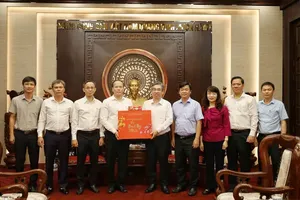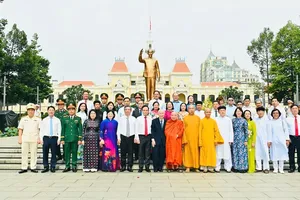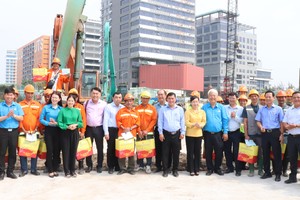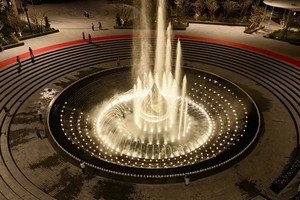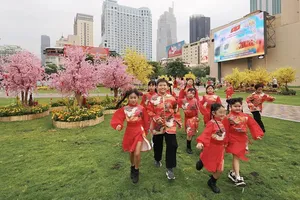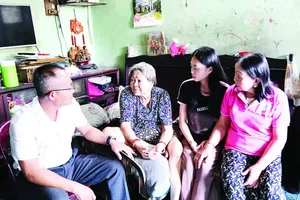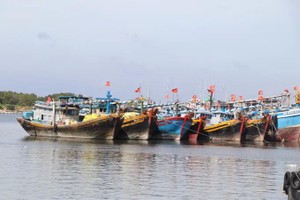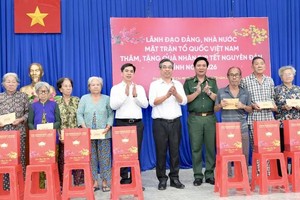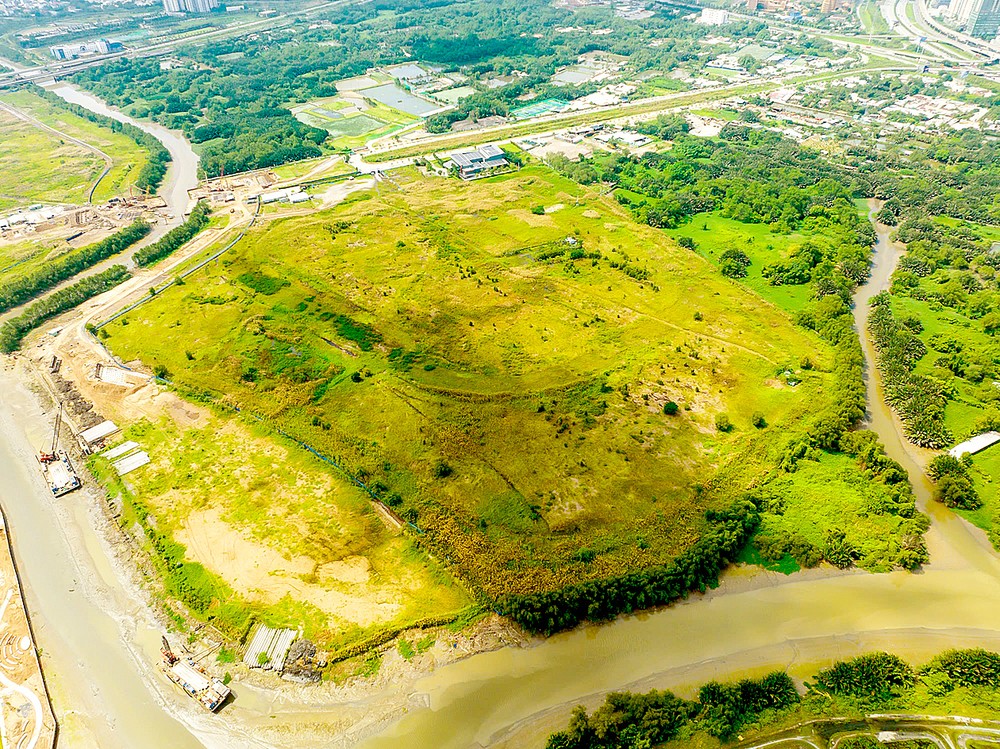
Public investment projects typically take around two years to complete. To expedite the implementation of cultural and sports projects under the public-private partnership (PPP) model, the Department is trying to simplifying procedures to shorten project timelines.
Director of the Department of Culture and Sports of Ho Chi Minh City Tran The Thuan reported that during the investment promotion conference for sports and cultural projects held last October, 300 companies participated. Among these, 19 companies formally expressed interest, entering into cooperation agreements to explore and conduct further research on the projects for potential involvement. Investors also visited the project sites for further evaluation. This indicates a significant interest from investors in the culture and sports sectors.
However, Director Tran Quang Thang of the Institute of Economics and Management of the City highlighted a concern regarding the effectiveness of attracting PPP investments in Ho Chi Minh City. He noted that despite previous proposals for a list of projects aimed at attracting PPP investment, very few have progressed to actual implementation. Therefore, this time, Ho Chi Minh City needs to have a different approach to successfully attract investors.
Mr. Tran The Thuan said that this time, Ho Chi Minh City not only created a list of projects, but each project has a specific assessment of advantages, strengths and preferential policies. Five of them are priority projects with clean land funds that have been designed and invested and capital recovery efficiency by the sports sector.
When Ho Chi Minh City proposed a specific mechanism based on Resolution 98/2023/QH15, the culture - sports sector had a proposal and it was allowed to pilot the implementation of projects in this field. Then, when Resolution 98 took effect, the municipal People's Council approved a list of 21 projects calling for investment under the PPP method in the field of culture and sports.
Director of the Ho Chi Minh City Department of Culture and Sports Tran The Thuan emphasized the critical need to expedite the investment procedures for public-private partnership (PPP) projects in the cultural and sports sectors. He noted that the Ho Chi Minh City Department of Planning and Investment is currently working on strategies to reduce the investment timeline for these initiatives.
Furthermore, Ho Chi Minh City State Financial Investment Company (HFIC) is providing guidance on loan policies and investment incentives to ensure the most favorable financing options for cultural and sports projects.
During a recent regular meeting of the Ho Chi Minh City People's Council, held at the end of the year, deputy Tang Huu Phong, who serves as Deputy Head of the Propaganda and Education Board of Ho Chi Minh City Party Committee raised inquiries with Director Tran The Thuan about the progress of the Phan Dinh Phung Sports Center and the Rach Chiec National Sports Complex projects.
The Ho Chi Minh City Department of Culture and Sports has indicated that the city's sports sector has not made significant strides on the international stage in recent years. A primary factor contributing to this situation is the insufficient facilities and inadequate training equipment for professional athletes, which have not kept pace with the rapid development of Ho Chi Minh City and the growing public demand for physical fitness and sports activities.
Director Tran The Thuan noted that the Rach Chiec National Sports Complex project received approval from the Ho Chi Minh City People's Committee in 2000, covering an area of 410 hectares. However, after more than two decades, the project remains unimplemented, despite numerous decisions from the People's Committee to modify the planning for the Rach Chiec area. Challenges related to site clearance and substantial costs have rendered the continuation of the project quite difficult.
Recently, Thu Duc City suggested reducing the planned area of the Rach Chiec project by nearly half to allocate land resources for socio-economic development. Nevertheless, following assessments, relevant sectors have recommended maintaining the existing land allocation for the sports sector, which includes the 186 hectares designated for the Rach Chiec area.
At present, the land allocated for cultural and sports activities in Ho Chi Minh City constitutes approximately 1.35 percent of the city's total land area, a figure notably lower than the national average. Among the 21 projects approved by the Ho Chi Minh City People's Council for investment solicitation, 16 are situated in the Rach Chiec area, including the 50,000-seat football stadium project.
According to the leader of the Department of Culture and Sports of Ho Chi Minh City, this is the industry's restart of the Rach Chiec area - which was interrupted for a long time due to changes in planning and legal regulations.
Meanwhile, the project to build a new Phan Dinh Phung Sports Center at No. 8 Vo Van Tan Street in District 3 was approved by the Prime Minister for pilot investment in the form of BT (build - transfer) since 2008. Since then, after several changes in investors and designs, the project has not been able to be implemented.
Chairman Phan Van Mai of the Ho Chi Minh City People's Committee, announced the decision to halt the BT project and transition to public investment on April 26, 2024. He cited significant economic, financial, and legal risks associated with continuing under the BT model.
A working group comprising representatives from the Departments of Planning and Investment, Finance, and Culture and Sports is currently evaluating and recommending the most viable investment approach to the Ho Chi Minh City People's Committee.
The head of the Department of Culture and Sports indicated that the current procedures are quite favorable, and there is an expectation that the project will be announced in conjunction with the 50th anniversary of the Liberation of the South and National Reunification Day.
